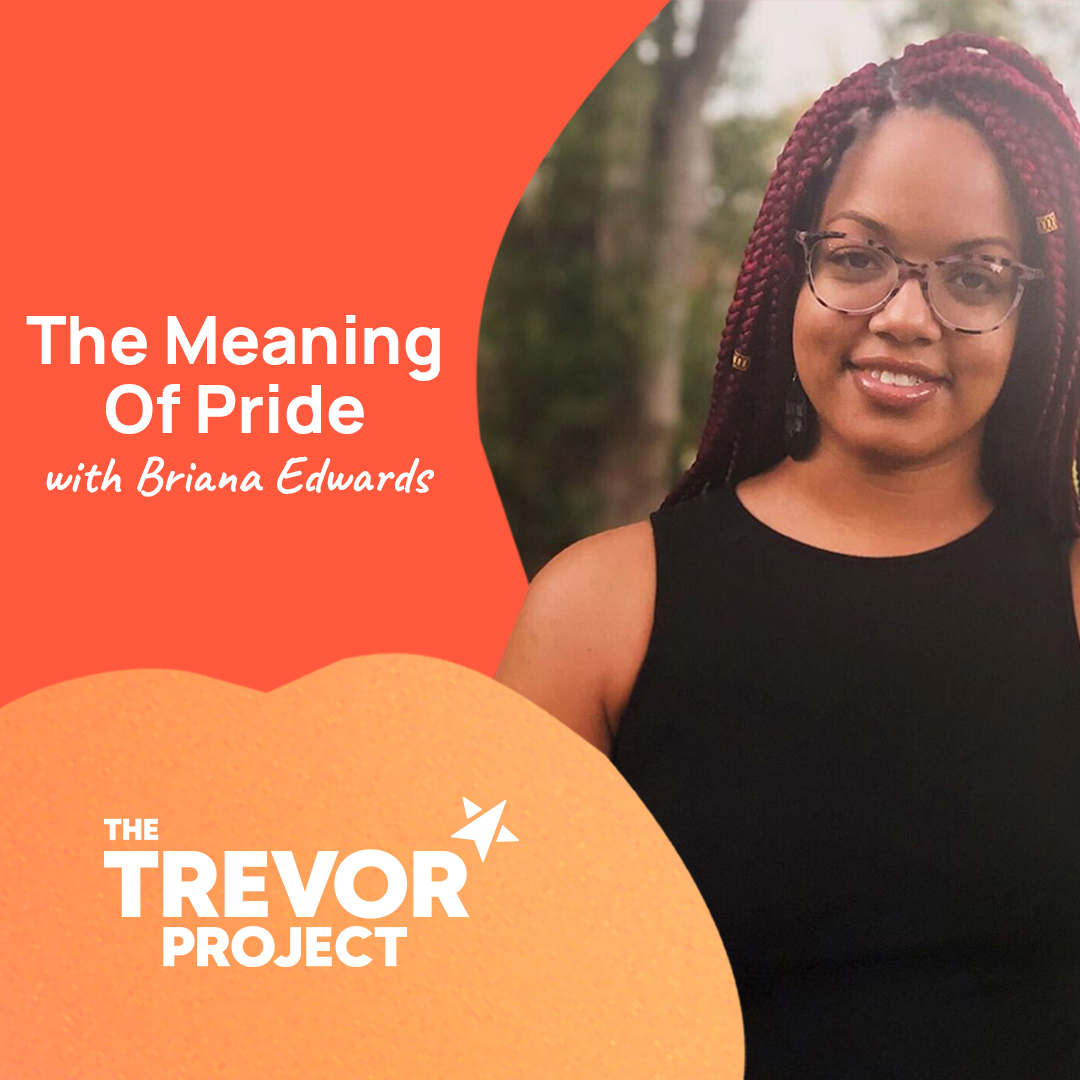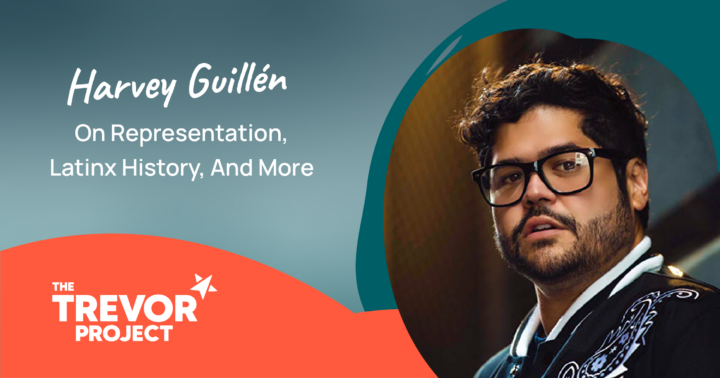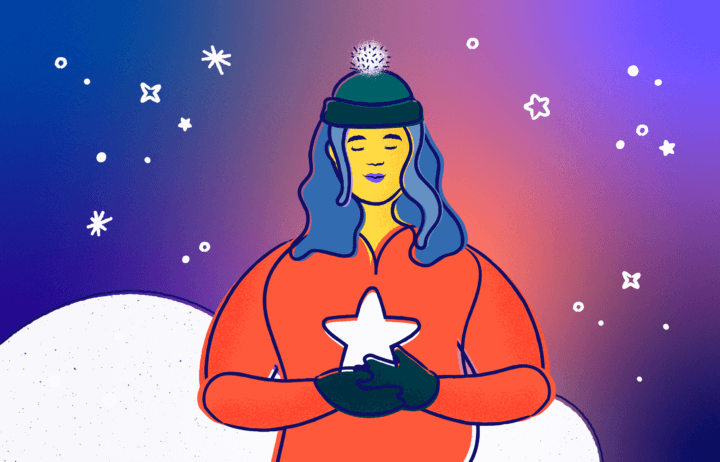Content Warning: This story explores anti-trans violence. For support, our trained crisis counselors are available 24/7 at 1-866-488-7386, via chat www.TheTrevorProject.org/Get-Help, or by texting START to 678-678.
Pride is no simple celebration; LGBTQ pride is a complex concept that means something different to everyone, shape-shifting to reflect a person’s unique lived experiences. The month of Pride, June, also holds another significant holiday: Juneteenth, or Freedom Day, the celebration of the emancipation of enslaved Black Americans. Briana Edwards (she/her), Professional Development Manager at The Trevor Project, finds this particular intersection of celebrations provides her a moment to celebrate her past, present, and future as a Queer, biracial, Black woman.
“I’ve been Black and Queer my entire life,” Briana explains, “even if I didn’t completely understand what that meant. During the first year of graduate school, I took a course that explored historically marginalized groups. I did not need the course to showcase the oppression I experience daily; however, the ability to articulate what I was going through created a sense of representation and relief. At each turn, the course gave me the lens to understand how Black women experience a particular kind of oppression and discrimination; furthermore, devaluing our work and place in society.”
Briana continues: “As a Black Queer woman, I further recognized those who came before me to pave a way for me. One of the more underreported trends in the LGBTQ community is the high rate at which trans people, specifically Black trans women, are murdered. Many of those numbers do not account for unreported and misreported murders, or trans people who have unexpectedly died under suspicious circumstances, but whose deaths have not been determined to be homicide.”
The Trevor Project research has helped to uncover both the unique mental health outcomes of LGBTQ Black young people, and the factors that cause the challenges they face. Still, the need for resources and research that specifically addresses the safety and lives of Black LGBTQ young people continues to be great. Briana has this to say: “I want better and I demand better. Education never stops and it’s important to acknowledge that we do not know everything. Unlearning what we thought ‘had to be a certain way’ is crucial in changing our core.”
“Black lives matter. Black LGBTQ lives matter. Black Trans lives matter. During such a violent, brutal time in American history, I encourage everyone to take the steps to educate themselves, be active in allyship, and to encourage those around them to do the same. Don’t let your fear or ignorance of the unknown and biases cloud your understanding.”
Sue Cardenas-Soto is a Copywriter at The Trevor Project, the world’s largest suicide prevention and mental health organization for lesbian, gay, bisexual, transgender, queer & questioning (LGBTQ) young people. If you or someone you know is feeling hopeless or suicidal, our trained crisis counselors are available 24/7 at 1-866-488-7386 via chat www.TheTrevorProject.org/Get-Help, or by texting START to 678-678.


